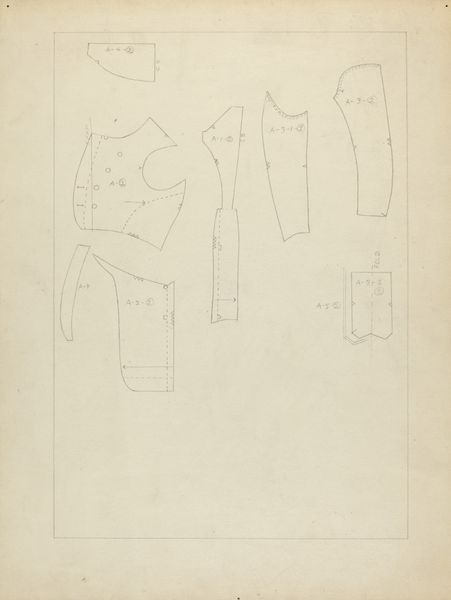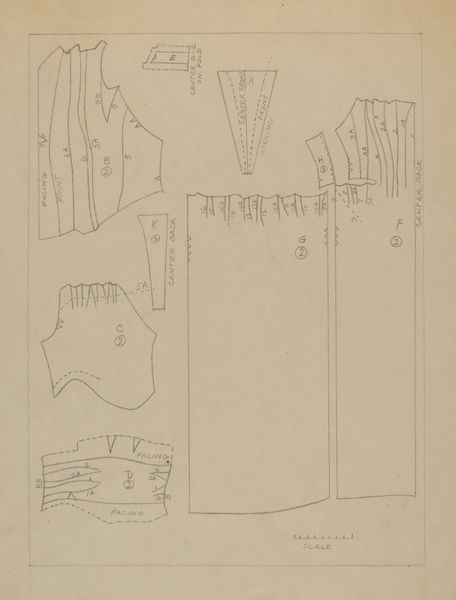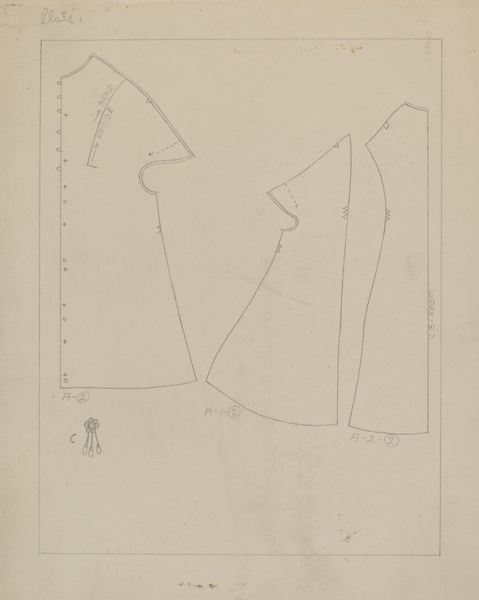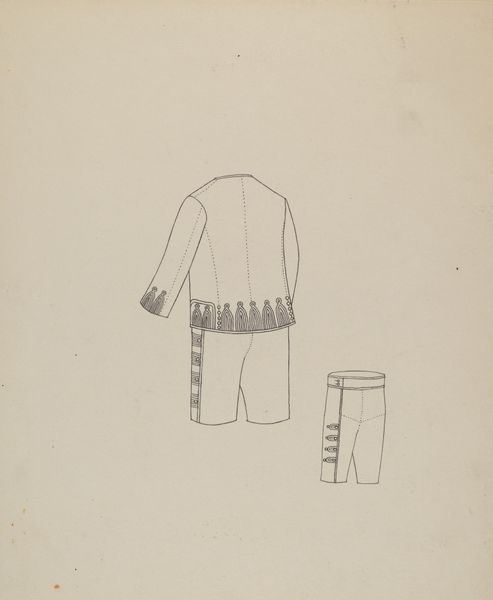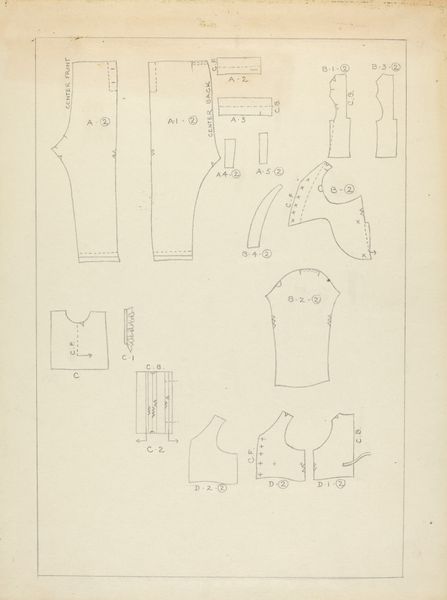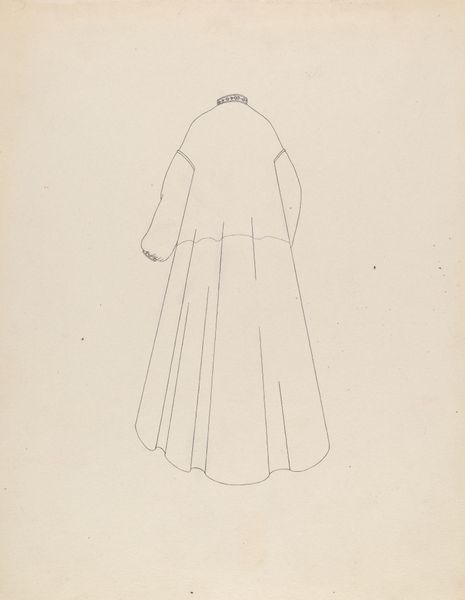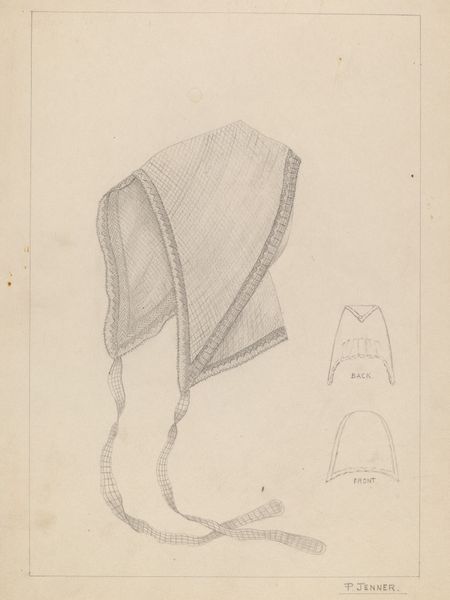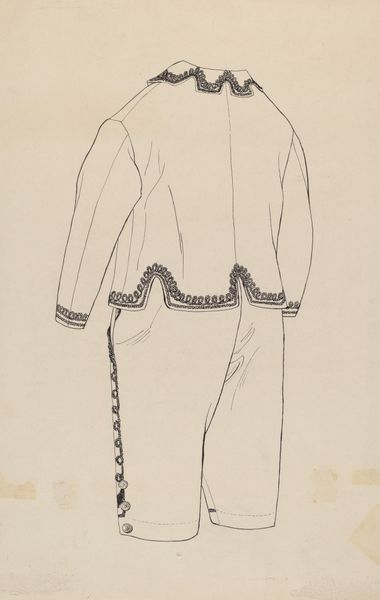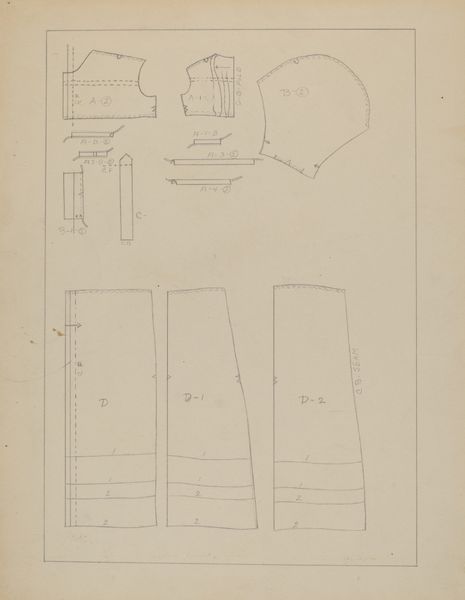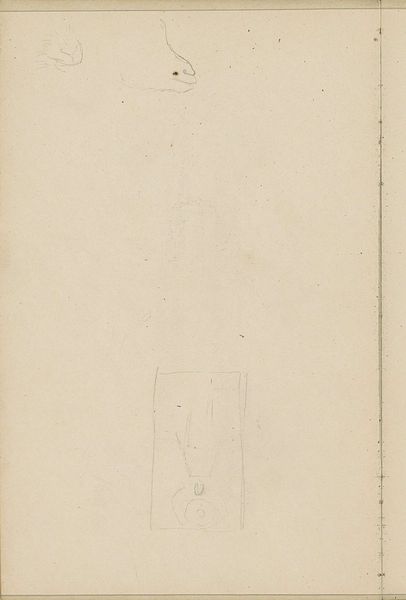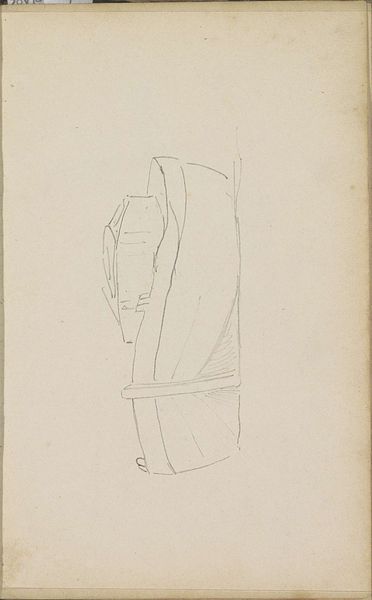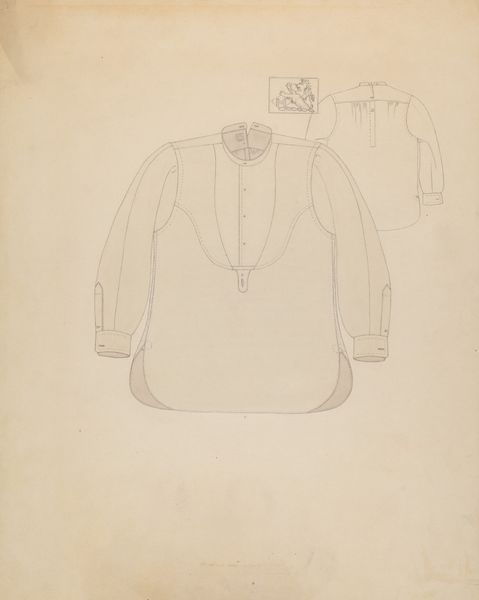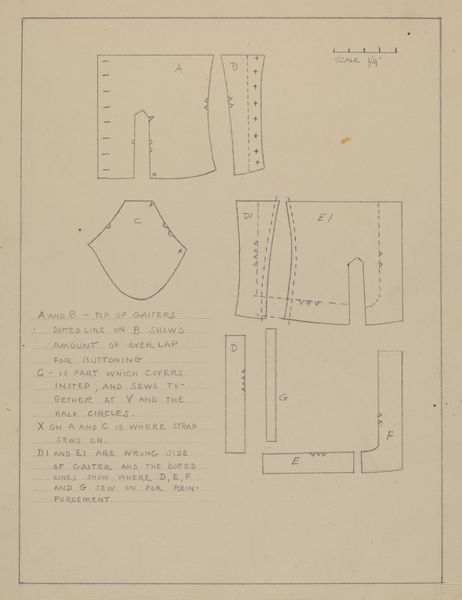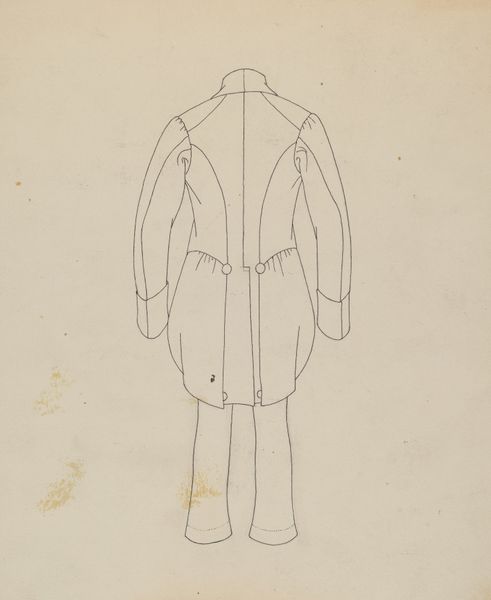
drawing, paper, pencil
#
drawing
#
light pencil work
#
sketched
#
sketch book
#
paper
#
personal sketchbook
#
historical fashion
#
idea generation sketch
#
geometric
#
pencil
#
line
#
sketchbook drawing
#
storyboard and sketchbook work
#
fashion sketch
#
clothing design
Dimensions: overall: 28 x 22.6 cm (11 x 8 7/8 in.)
Copyright: National Gallery of Art: CC0 1.0
Editor: So, this is "Woman's Coat (Pattern)" from around 1937 by Mina Greene, rendered in pencil on paper. It’s quite minimalist, almost architectural in its lines. What stories do you see within this seemingly simple design? Curator: What I see here is a glimpse into the aspirations and constraints of women in the late 1930s. This pattern isn't just about making a coat; it speaks to agency and resourcefulness during the Depression era. Do you think the act of creating one's own clothing during this period might have carried a particular weight, perhaps a statement of self-reliance? Editor: I hadn't considered it that way. It’s easy to see it as purely functional, but now I wonder about the implied agency – the woman taking control, not just of her appearance but also her economic situation. How does this relate to broader discussions about gender roles at the time? Curator: Precisely. The creation and adaptation of clothing by women becomes a subtle, everyday form of resistance and expression within societal constraints. Consider how the silhouette might subtly subvert or align with prevailing fashion trends. Does this resonate with the clothing we see in photos from that time? Editor: Definitely. This drawing prompts me to consider the narratives embedded in ordinary objects. The seemingly mundane act of sewing becomes intertwined with themes of self-sufficiency and resistance. I never imagined I'd consider it such a commentary! Curator: It is, isn't it? By examining this sketch, we reveal threads of history, identity, and resistance sewn into the fabric of everyday life. Editor: This was an amazing way to view the pattern – so much more than lines on a page. Curator: Agreed! Seeing art as an entry point into complex social narratives gives us a more robust understanding of the past.
Comments
No comments
Be the first to comment and join the conversation on the ultimate creative platform.
